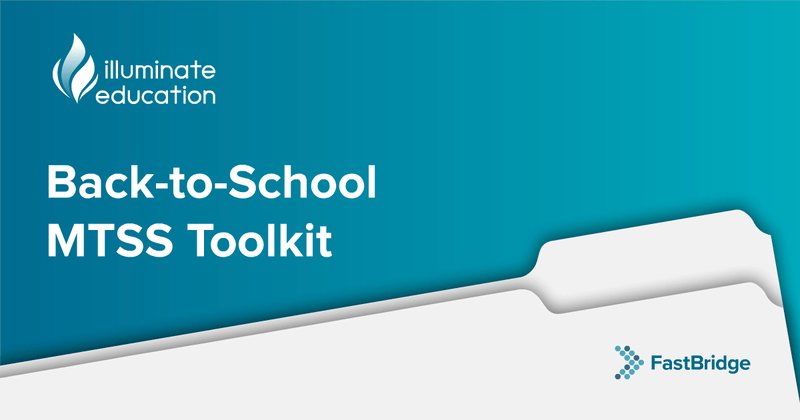By: Dr. Peter M. Nelson—Penn State University College of Education
We’ve all had moments when we’d like to understand something, but just didn’t quite have the expertise to fully (or even partially) understand the subject matter.
Sometimes those situations are low-stakes—it doesn’t bother me too much when I can’t follow a dinner party chat about the newest technology trend. But sometimes the stakes are higher (ever tried to decipher a mortgage document on your own?). When it comes to the latter, it pays to have someone who can help to translate industry-specific jargon.
The conversation that parents have with educators around student achievement qualifies as one of those moments. Parents need school professionals to be competent with data; however, it’s just as important that those professionals are competent in sharing and discussing data.
Here are a few key guidelines for communicating data about student achievement to “non-experts” such as parents:
- Communicate the “Why.” You have good reasons for collecting achievement data. Communicate them to parents. Are you talking about universal screening data? Before talking about “risk status,” explain how universal screening helps you improve service for students at the school. Are you sharing progress monitoring data? Reiterate why those data were collected and what that information does (and does NOT) tell you about the student. In short, before diving into the details of student performance, it’s useful for parents to understand why those data exist at all.
- Communicate Clearly. In addition to the raw or observed score, there are at least two important categories of scores that parents should understand: criterion-referenced scores and norm-referenced scores. Criterion benchmarks are directly related to how students perform relative to an expected level of performance. For example, a third grade student who scores below 198 on Adaptive Math (aMath) may be a candidate for additional instructional support based on their predicted performance on some criterion (e.g., the state test in math).
In addition to criterion benchmarks, it’s also common for tests to offer up normative data in which students’ scores are directly compared to other students in the nation, district, school, or grade. In that case, the comparison group is pretty important and parents should know this. Local norms are useful for resource allocation, but they can be confusing for parents as they are directly connected to a very small comparison group. For example, a student at Lake Woebegone high school might score well above the criterion benchmark, have a national percentile of 60 and a local percentile of 20. In that case, it is critical for parents to understand the difference between those scores.
Note that it may not always be clear when parents are confused by achievement data. You can help prevent potential misunderstandings by familiarizing yourself with the various scores available to parents and working to make sure the meaning of those scores is clearly communicated in any documents that are sent home and during all in-person conversations.
- Communicate Often. Early in my teacher training program, a mentor offered some advice on parent phone calls. He pointed out that the first time parents hear about their child’s behavior in class it shouldn’t be because the student got into trouble. That turned out to be excellent advice—being proactive (and positive) in regular communication with parents can pay out big time if a problem eventually comes up.
The same is likely true when it comes to student achievement data. If you’re engaging in formative assessment, explain the different data you’ll have access to before there are results to report. In the same way you discuss your plans for the academic year with parents, you might also highlight the kinds of data you’ll be collecting—and why you’re collecting those data. That information might be a great addition to newsletters or other commonly used communication tools.
In addition, make assessment results a regular star in conversations with parents. Reference student data and if possible, take advantage of user-friendly reports that many assessments offer as a resource for communication. Finally, remember that quantitative data don’t need to dominate the conversation—there are limits to achievement data. There are many important insights that you might have based on your observations of students in class as well. Use both qualitative and quantitative information to piece together a meaningful picture of each student’s strengths and weaknesses.
A Final Note: It’s important to recall that achievement isn’t fixed. Students’ experiences in the school environment play a critical role in their cognitive development and those experiences are—at least to some degree—under the control of the school. A student who scores low on an achievement test or does not demonstrate adequate growth over time is not hopeless. Likewise, a student who scores high on an achievement test or demonstrates substantial growth may still have room to grow in some areas. Thus, when communicating student achievement data to parents, it’s useful to guide the conversation toward actionable steps for improving student performance. That might include a clear and honest description of test reports, but it also includes connecting those reports to service delivery.
Join Dr. Nelson and Dr. Theodore J. Christ on Wednesday, December 2nd at 3:00 p.m. CT for a free "Ask the Experts" webinar "Communicating Data About Achievement and Growth to Parents" for a deeper discussion and additional guidelines for educators. Register Now!
Dr. Nelson is an Assistant Professor of School Psychology at Penn State University. He completed his doctoral training in school psychology at the University of Minnesota after obtaining his M.A. in education from the University of Mississippi. A former high school teacher, his primary research interests focus on data-based decision-making, prevention, and intervention in the classroom setting. He has published and presented on issues related to effective math intervention, classroom environment assessment, teacher development, screening, and progress monitoring.







